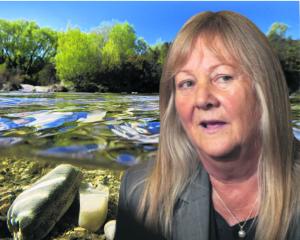Forums on the "far-reaching" changes proposed in the way the Otago Regional Council deals with water quality are struggling to attract their target audience - farmers.
Just seven people have signed up for the forum in Balclutha and farmers say that is mostly because of the two-day length of the forums.
The forums have been organised by the council to give farmers a chance to have their say on the new effects-based water-quality management method it hopes to introduce. The regional council had sent out more than 1000 invitations.
Speakers from Government, farming, the meat industry, rural servicing sector, and the scientific community had been arranged for the Balclutha and Cromwell forums on May 24-25 and 26-27, respectively.
Council strategic communications associate director Peter Taylor said if at least 13 more registrations were not received by May 17, the Balclutha forum would have to be cancelled, but the Cromwell forum, which had 20 registrations, would proceed.
The two-day timetable was necessary to explain the technical nature of the changes as well as get feedback from participants.
Stirling dairy farmer Stephen Korteweg said the timing of the forum was not good as farmers were busy drying off stock and moving them for grazing, and some would struggle to justify being away from their properties for two days.
"It's not a lack of interest. Trying to get dairy farmers to sit in a room for two days is a bit ambitious."
The council, which was charging $50 to attend the forum, needed to go back to the drawing board and look at doing the forums in stages, no more than six hours long at a time, as the line-up was very "full-on", he said.
Cr Stephen Woodhead said the proposed changes were far-reaching and it was vital farmers got involved at the start of this process. "These forums offer Otago farmers a chance to influence water-quality policy in Otago. It is essential they get involved and council hears their views."
He hoped the lack of registrations was just farmers' being slow to register but it was "disappointing".
Water allocation forums in Cromwell had attracted more than 100 registrations and the process had worked very well. The ORC had been hoping for a similar result with the water-quality forums, he said.
Everyone wanted clean waterways, so the degradation from intensive agriculture could not continue, he said.













